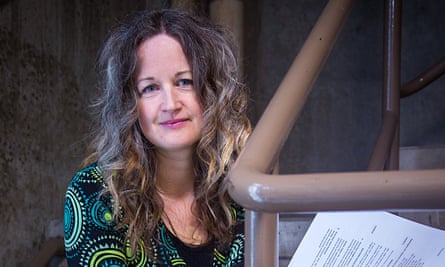When Gemma Parker, a secondary school teacher, tweeted about teaching students about racism earlier this year, she wasn’t prepared for the flood of abuse she unleashed. A rightwing activist group flagged her as a dangerous teacher, and within hours she had been labelled a “Nazi sympathiser” and a “child abuser”, as thousands of people waded in to attack her.
“I was teaching a class and I kept getting calls from friends asking if I was all right. When I finally checked there were thousands of responses.”
Parker (not her real name) uses Twitter regularly to share ideas and experiences with other teachers. She says sometimes people have disagreed with her thoughts on diversifying the curriculum, “but it has always been a pleasant and respectful discussion”. This time was different, with many tweets saying she shouldn’t be allowed near children. “This was an attack,” she says.
The abuse became so invasive that Parker had to close down her Twitter account. Her school was supportive, but she still worried about the impact of large numbers of people “trying to tar my professional reputation”.
“It has had a huge impact on my mental health,” she says.
Her experience is not an isolated one. Teachers, headteachers and academics say they have been driven off social media and made to feel intensely anxious – sometimes even facing death threats – after their comments or work have been labelled too “woke” on Twitter or in the rightwing press. While social media abuse is already common, teachers say some of the attacks against them are part of a more orchestrated campaign. They argue that while their detractors accuse them of being “woke” or part of “cancel culture”, it is in fact they, the teachers and academics, who are being silenced.
Parker was singled out by Turning Point UK, the recently imported British offshoot of Turning Point USA, a Trump-supporting rightwing organisation. Turning Point UK, which has 36,000 followers on Twitter, encourages its supporters to report teachers and academics for “leftwing bias” on the Education Watch part of its site, and often names individual teachers and schools on its Twitter feed.
She has rejoined Twitter now, but approaches it with fear. “I find myself asking ‘Am I going to get attacked for this?’”
Eric Lybeck, a presidential fellow at Manchester University’s Institute of Education, who has been researching Turning Point, says: “We are in the midst of a raging culture war and it is not the ‘woke’ side that are the aggressors here. Many of these educators are simply trying to do their job and are being hounded out of the public square by literal mobs.”

He adds: “The right is crying about ‘chilling effects’, ‘social media mobs’ and ‘monoculture’, but they are pursuing precisely those aims. Their loud protests provide them cover to pursue precisely that which they claim to be offended by.”
The headteacher of a primary school, who spoke to the Guardian on condition of anonymity for fear of further attacks, experienced death threats after a tabloid picked up a tweet about rethinking the core values of her school to make it more inclusive. “We had hundreds, if not thousands, of emails which were hate mail,” she says. “One said I was a sexual abuser. A complaint was made to the local authority that I was an extremist. There was an investigation, which came to nothing. I had to contact CID and the police on numerous occasions as there were threats to my life and to the school.”
One common theme of the abusive messages, which kept coming for many days, was that the head should not be trusted with children. “That cuts deep,” she says. “At that point I had been working 20 hours a day on risk assessments keeping our community safe in the pandemic and on supporting staff and children’s wellbeing. Suddenly I was being ripped apart on social media and in the tabloids.”
She says parents were “absolutely fantastic” and supported her school fully. One dropped off a case of wine to cheer up the staff in the midst of the bad publicity. But she admits: “It did break me on a couple of occasions. I’ve got a box in my room with hundreds of kind emails and letters supporting me, but I had to have counselling to help deal with it all.”
She felt unable to defend her vision for the school or her own reputation, deciding “you only fuel the fire by fighting back”. She says: “I would say teachers who go through this have to be prepared from a personal and a professional point of view, as they will attack you on both. But fight the urge to say something. Rant to your own support network instead.”
Now she worries this sort of abuse is having a chilling effect on teachers. “I can see colleagues on social media who before would have had open discussions about some issues and just won’t risk it any more. I know there is work going on across the country around diversity and reshaping the curriculum, but a lot of that isn’t being shared. This silencing could very easily work.”
Corinne Fowler, professor of post-colonial literature at the University of Leicester, has had to involve the police four times after critical media coverage of the Colonial Countryside programme she leads for the National Trust triggered a deluge of hate mail. As part of the programme, in which historians and writers collaborate, 100 primary schoolchildren have visited some of the trust’s country houses and explored their past links with colonialism.
“I have had threats to my personal and digital security, a lot of hate mail to my place of work, a lot of malicious emails, suggestions for how to kill me under Daily Mail articles after false reports about my book content,” she says. “At one point I couldn’t go walking alone.”
Fowler is unapologetic about her work, despite fierce opposition from some Conservative MPs and commentators. “It’s time to look the genie in the eye on Britain’s colonial history rather than trying to push it back into the bottle,” she says. But she adds: “I’ve been at the sharp end of political opposition to evidence-based research for nine months now. I wouldn’t wish the experience on anyone.”

Dr Branwen Bingle, head of primary initial teacher education at Newman University, Birmingham, found herself in the middle of a Twitter storm – fuelled by a tweet from Turning Point UK – when she replied to a teacher’s tweet about a student asking if you could be racist to a white person. “I had a feeling it [the question] might be inflammatory, but it was being asked by someone who wanted to engage and discuss things. I gave a brief clear response based on my own experience and on things I had read.”
Bingle received a flood of angry replies, but chose not to read them. “I realised this wasn’t a discussion, it was an onslaught. It felt like an orchestrated attack, and I just decided not to read any of it.”
Nonetheless she says she started to worry about how easy it would be for people to track down her email address and find her. “This is a silencing tactic,” she says. “At first I thought it hadn’t worked, but then I went to write a reply on a different thread and decided not to because I didn’t want more of this. So it clearly did work. It has a chilling effect.”
Julie McCulloch, director of policy at the Association of School and College Leaders, says whereas school leaders used to be attacked mainly by disgruntled parents on social media, increasingly they are being “pounced on” by people who are against “political correctness”.
She says: “There is obviously nothing wrong with reasonable debate on social media platforms; it is the level of hostility and nastiness that is often involved that is the problem. The increasingly toxic environment online seems likely to stifle discussion and debate in the virtual and the real world.”
Turning Point UK was approached for a comment.
Some details have been changed to avoid identifying teachers and schools.
